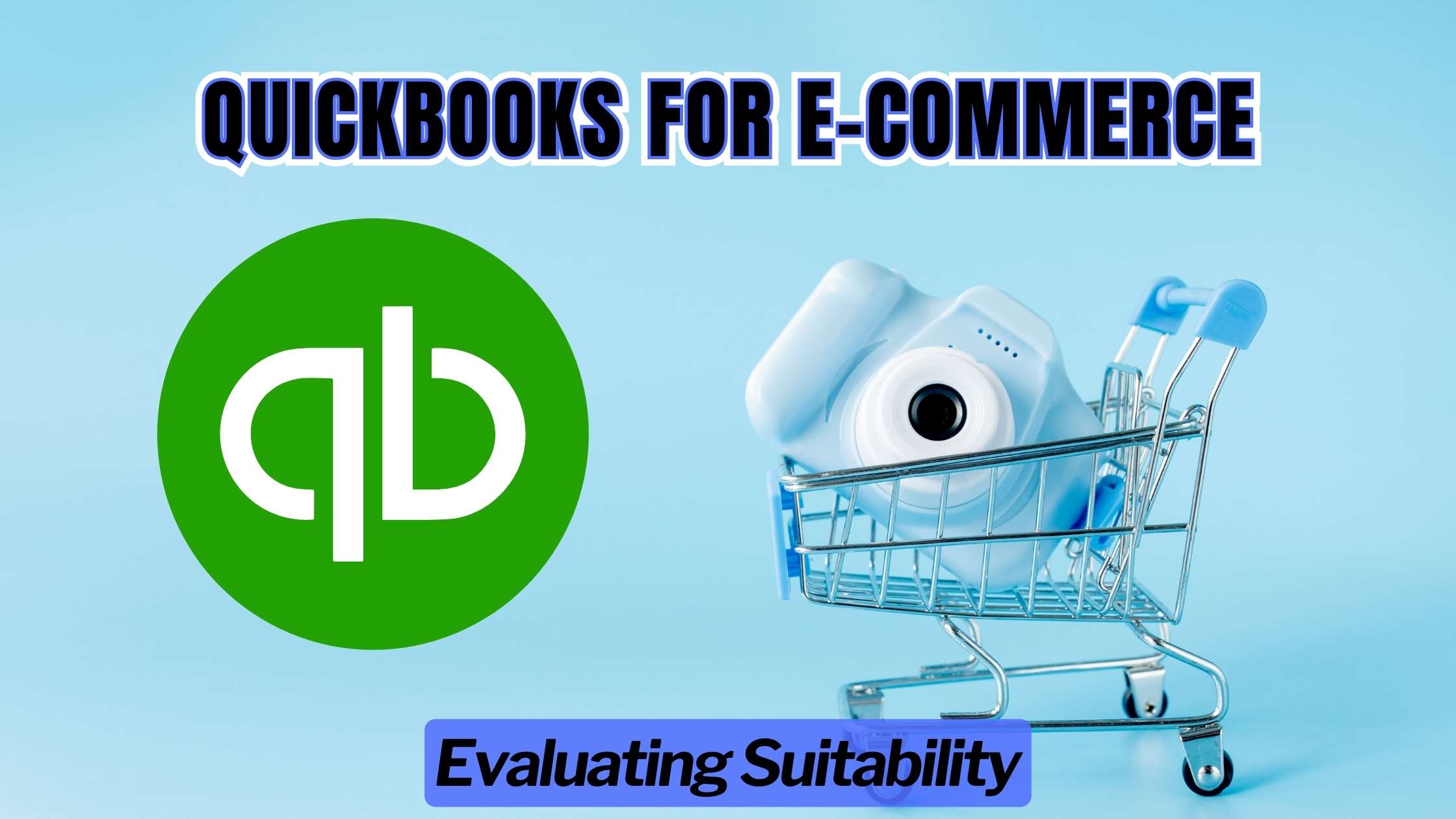QuickBooks for E-commerce: Evaluating Suitability
- Expense Management Software Credit Cards Investing Business Solutions


QuickBooks for E-commerce: Evaluating Suitability
In the dynamic landscape of e-commerce, managing finances efficiently is paramount for the success and sustainability of online businesses. QuickBooks, a leading accounting software, offers a range of features tailored to the needs of e-commerce entrepreneurs. In this article, we’ll delve into the suitability of QuickBooks for e-commerce businesses, exploring its functionalities, benefits, and potential drawbacks.
Understanding QuickBooks for E-commerce
QuickBooks is a versatile accounting software solution designed to streamline financial management tasks, including invoicing, expense tracking, inventory management, and reporting. For e-commerce businesses, QuickBooks offers several features that can help simplify bookkeeping processes and provide valuable insights into financial performance.
1. Invoicing and Payment Processing
One of the key benefits of QuickBooks for e-commerce businesses is its invoicing and payment processing capabilities. With QuickBooks, businesses can easily create professional invoices, track payments, and manage cash flow more effectively. Integration with popular payment gateways allows for seamless transaction processing, facilitating smoother customer transactions and revenue management.
Relevant SaaS Products:
- Stripe: A leading payment processing platform that seamlessly integrates with QuickBooks, enabling businesses to accept online payments securely.
2. Inventory Management
Effective inventory management is essential for e-commerce businesses to optimize stock levels, prevent stockouts, and minimize storage costs. QuickBooks offers inventory tracking features that allow businesses to monitor stock levels, track product movement, and generate real-time inventory reports. This visibility into inventory data enables businesses to make informed decisions and ensure timely fulfillment of customer orders.
Relevant SaaS Products:
- TradeGecko: An inventory management software that integrates with QuickBooks, providing advanced inventory tracking, order management, and multi-channel selling capabilities.
3. Financial Reporting and Analysis
QuickBooks provides robust reporting tools that enable e-commerce businesses to generate customizable financial reports, including profit and loss statements, balance sheets, and cash flow forecasts. These insights into financial performance empower businesses to identify trends, track key metrics, and make data-driven decisions to drive growth and profitability.
Relevant SaaS Products:
- Fathom: A financial reporting and analysis tool that integrates with QuickBooks, offering advanced analytics, benchmarking, and KPI tracking features.
Evaluating Suitability for E-commerce
1. Scalability and Flexibility
One of the primary considerations when evaluating QuickBooks for e-commerce is its scalability and flexibility to accommodate the growing needs of online businesses. While QuickBooks offers scalable pricing plans and customizable features, businesses with complex inventory requirements or high transaction volumes may require additional integrations or specialized solutions to meet their specific needs.
2. Integration Capabilities
Another aspect to consider is QuickBooks’ integration capabilities with other e-commerce platforms, payment gateways, and third-party apps. Seamless integration with e-commerce platforms such as Shopify, WooCommerce, and Amazon can streamline data synchronization and automate financial workflows, enhancing operational efficiency and productivity for e-commerce businesses.
3. Cost-effectiveness
Cost-effectiveness is a crucial factor for e-commerce businesses, particularly startups and small enterprises with limited budgets. QuickBooks offers various pricing plans tailored to the needs of different businesses, with scalable options that align with growth objectives. However, businesses should carefully assess their requirements and choose a plan that offers the right balance of features and affordability.
Conclusion
In conclusion, QuickBooks presents a viable accounting solution for e-commerce businesses seeking to streamline financial management processes, gain actionable insights, and drive growth. With its comprehensive features, integrations, and scalability, QuickBooks can help e-commerce entrepreneurs effectively manage their finances and navigate the complexities of online selling.
As e-commerce businesses explore accounting solutions like QuickBooks to manage their finances, platforms like Subscribed.FYI offer valuable resources for discovering, comparing, and managing a wide range of SaaS tools. With its curated insights, user reviews, and exclusive deals, Subscribed.FYI empowers e-commerce entrepreneurs to make informed decisions and optimize their software stack for enhanced productivity and profitability.
Relevant Product Links:








